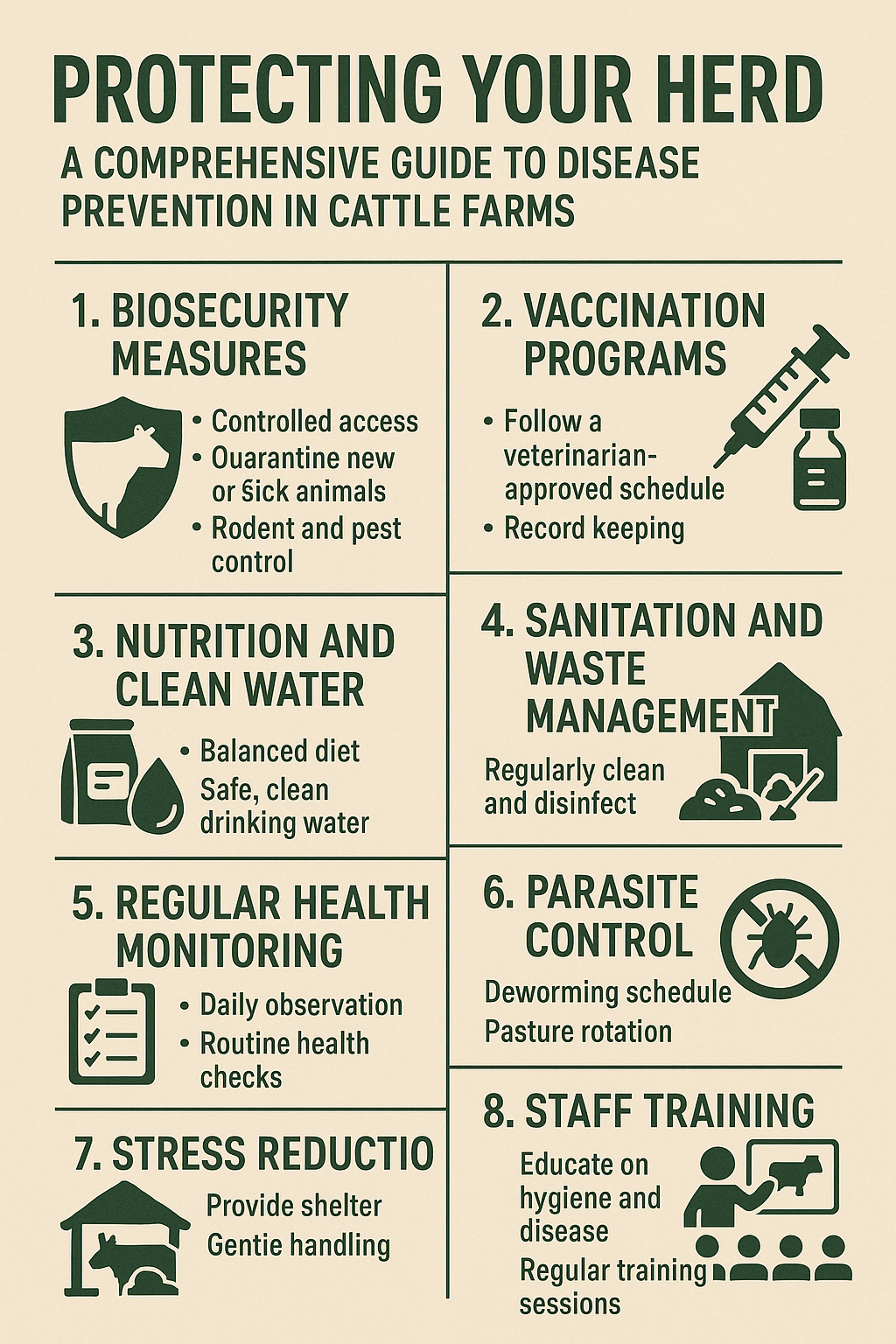
Introduction:
Minerals are the inorganic compounds required for normal body maintenance, growth and reproduction of dairy cattle and buffalo. There are 40 minerals required by the animal body however only 40 minerals are of dietary importance. Minerals that are required in large amounts are called macro minerals (required more than 100mg/kg dry matter) Calcium, Phosphorus, Magnesium, Sulphur etc. Those needed in small amounts are classified as micro minerals (required less than 100mg/kg dry matter) Iron, Iodine, Copper, Cobalt, Zinc, Molybdenum, Selenium etc. The productive and reproductive efficiency of animals is the most important factor in the success of dairy farms. Minerals play a very precious role in maintaining the productive and reproductive health of a dairy herd. Trace elements have critical roles in key interrelated systems of immune function, oxidative metabolism and energy metabolism in ruminants which are directly or indirectly involved in growth, production and reproduction.
India is a country of diversity, easily reflect in our culture, crops, foods & festivals which is due to huge variations in soil mineral composition. If the specific mineral is absent or deficient in a particular soil may create a mineral deficiency in the crop that deficiency transfers into the animal. So needs of hour supplementation of “Area specific mineral mixture” in proper doses to fulfil the demand of minerals requirements as per NDDB guidelines.
Zinc:
Functions of Minerals in animals’ performance.
Zinc plays an essential role in the maintenance and repair of the uterine lining after calving and helps in early involution. Abnormal levels of zinc are associated with decreased conception rate, abnormal estrous and abortion. Zn is an important component of various metalloenzymes and an activator of more than 300 enzymes in the animal body (Salim et al., 2012).
Copper:
Required for Hemoglobin synthesis and for tissue pigmentation and normal reproductive function. Cu is related to the synthesis and secretion of the hypophysiary hormones, modulating the capacity for the liberation of the luteinizing hormone (LH). Copper regulates the GnRH & helps in ovulation.
Cobalt:
Cobalt play’s an important role in the synthesis of Vitamin B12. The level of Vitamin B12 is high in milk and colostrum which is required for the conversion of propionate into glucose and folic acid metabolism. The need of cobalt for thymine synthesis, which is required for DNA synthesis, explains the biological role of cobalt in cell division, growth and reproduction.
Manganese:
Mn is involved in energy metabolism, and cartilage formation and is also important in cholesterol synthesis which is very essential for the synthesis of steroids like estrogen and progesterone and testosterone. It is responsible for silent estrus and anestrus. A deficiency of Mn results in poor growth and impaired reproduction, which is characterized by testicular atrophy in males and impaired ovulation in females.
Chromium:
Chromium has an improving effect on insulin binding and increases the number of insulin receptors on the cell surface and sensitivity of pancreatic β-cells together with an overall increase of insulin sensitivity thus increase the glucose uptake and utilized in lactose synthesis for milk production.
Selenium:
Selenium is an essential trace mineral and plays an important role in various biological reactions like an antioxidant defense by the virtue of the important component of the enzyme glutathione peroxidase and selenoproteins. It is also required for optimum fertility in both males and females, conversion of thyroid hormone into active form and immunomodulation.
Iodine:
Necessary for thyroid hormone synthesis that regulates BMR and energy metabolism Reproductive disorder in iodine deficiency due to thyroid gland dysfunction in the dam, embryo or fetus, which in the last two can cause embryonic death, abortion, stillbirth or weak goitrous calves (suttle, 2010).
Calcium.
Required for the development and formation of bones & teeth. Helps in the clotting of blood. essential for milk production required for muscle contraction & nerve conduction. Deficiency causes various metabolic diseases like milk fever and retention of the placenta which may lead to metritis.
Magnesium: Important for the integrity of bone and teeth. Involved in protein synthesis and metabolism of carbohydrates and lipids and plays important role in muscle contraction.
Sodium, Potassium and Chloride: All required for the maintenance of osmotic pressure and acid-base equilibrium. Potassium helps in the contraction and relaxation of the heart. Potassium is necessary for protein synthesis.
Conclusion:
India is a country of diversity having variable minerals composition in soil, water & fodder.
The use of a single mineral mixture for the whole country is not the right way of mineral supplementation, which may either create deficiency or toxicity to the animal. So it is very necessary to offer Glycine chelated “Area specific mineral mixture’’ to overcome the problem of mineral imbalance and boost the animal’s reproductive efficiency and productive potential.

Dr. Kaushlendra Narayan Dwivedi*1, Dr. Deepak Dhiman2, Dr. Gopal Jaiswal3, Hilal Ahmad Bhat4
1Technical Manager, Carus Laboratories Pvt. Limited, Karnal, Haryana

















